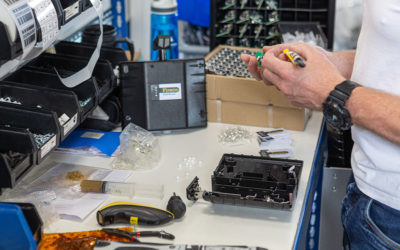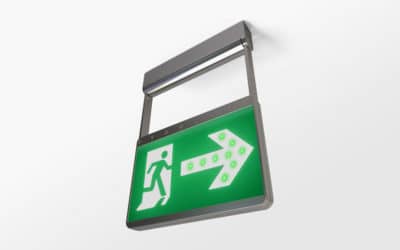Fire Risk Assessments – Why do we bother?
I’ve been active in fire safety in some capacity for over 30 years, and I’m frequently asked similar questions about Fire Risk Assessments…
- Why do we need them?
- Why bother?
- It’s only for companies to make money.
- They never help save lives.
- Even if we have one done, we won’t bother with the action points.
- Even if we have one done, we can’t afford to make the action points.
The list goes on and on; some of them I understand why the questions should be asked, some I don’t want to hear, some are just silly and dam right dangerous to their business or society they live in; but why do people refuse to have a Fire Risk Assessment done?
From my findings and opinion based on the feedback of clients, these are some of the issues and answers I have come up with…
Why do we need one?
Clients – To cover your backside and give someone money for a document that sits in a draw until there is a fire, and it will help with insurance.
1st Aid Fire – Simple, the law requires one. This is based on evidence showing a Fire Risk Assessment reveals potential risks within a company property over time and that if these dangers are addressed, the likelihood of a fire is lowered.
Why bother?
Clients – We have never had one done because no one has ever asked to see it; why waste the money on having one done.
1st Aid Fire – In “Health and Safety,” you have a responsibility to ensure that the working environment is safe for yourself, your coworkers, and visitors. Over the years, it has been demonstrated that the Fire Risk Assessment is beneficial and, in some circumstances, life-saving.
It’s only for other companies to make money.
Clients – Why should I pay you “X” amount of money when you’re only at the property for a few hours? I instantly informed a potential client about the items above. I’m always eager to talk about these issues, and I’m always pleased to explain how much I charge.
1st Aid Fire – Fire Risk Assessments are less expensive than you might imagine; I keep mine prices low as I’d rather keep businesses safe rather than making lots of money. I’ve said this in the past, and companies/people have responded with, “what a load of nonsense”… On second thought, if I didn’t say that and increased the cost of a Fire Risk Assessment, would people be willing to pay the extra money to have an FRA completed? The simple answer is no.
Don’t get me wrong, I know, and I have worked for companies in the past who charge a large amount of money for an FRA; why do we feel like we can justify our prices?
- Most companies insist on a service provider having £5m worth insurance (Public Liability and Professional Indemnity – which is not cheap)
- You’re paying for my years of experience.
- You’re paying for all the courses I have been on to qualify me to do my job.
- Travel (and the possible congestion charge, bridge crossings, etc.)
- Parking
- Day to inspect the property.
- Day to write up the FRA.
And this is just a quick list; However, I still think I don’t charge enough, but I am happy with the fees I charge.
They never help save lives.
Clients – They are a waste of time and money…
1st Aid Fire – FRAs can only assist save lives if you act on the findings of the report you’ve been provided. Remember that the FRA indicates a number of positive aspects as well as opportunities for improvement, but they will only assist “maybe” save lives if the action points are completed. Difficulties will gradually be rectified after a few FRAs and a proper maintenance program, and it will be simple to stay on top of any new issues that occur.
Even if we have one done, we won’t bother with the action points.
Even if we have one done, we can’t afford to make the action points.
1st Aid Fire – When it comes to booking an FRA, the cost is always the decisive factor… People believe that corrective work will cost an arm and a leg; to be honest, some of it will, but it will cost a lot if you have buried your head in the sand and not done any work in a long time or if you have purchased a home in that condition.
Main points picked up on FRA’s:
Missing self-closing devices
Fire doors not meeting the required standards (BS476 Part 22)
Fire Doors being propped open
Electrical cupboards not being fire-rated
Fire Extinguishers not in the property or not serviceable
Staff training is not up to date
Weekly/Monthly etc. not being done
So, let’s look at the cost of some of the above points:
Self-closing devices can be bought for as little as £20 Basic, and £150 electronic can be fitted by your maintenance person.
Dorgard devises will stop the fire door from being wedged open and can be purchased for as little as £90 and can be fitted by your maintenance person.
Fire Extinguisher servicing is cheaper than you may think, with Water, Foam, and Dry Powder being as cheap as £10 per extinguisher; this can be cheaper if you have a lot within the premisses.
Staff Training – There are Level 1 and Level 2 fire safety training: Level 1 basic and Level 2 Fire Warden/Marshal. Both courses should include live-fire training so that the extinguisher can be utilized while the Fire Wardens/Marshals are investigating the ringing of the fire alarm. Training for up to 12 people should cost no more than £1,000; if you do your research, you can find cheaper options.
Fire Door Replacement As an ex-director of a fire door replacement company (then covid hit), I have done much study into the pricing of fire doors and believe that if you are paying more than £1,500 per door (Normal size door), you should look elsewhere. I have been a fire safety office in several Hospital’s in London and have spoken with procurement about providing the service, but because there is a “conflict of interest,” they would rather pay well over £2,000 for a single fire door instead of adding my company to their preferred user’s list where I was offering the same standard fire door for £1,300… A saving of £700 PER FIRE DOOR…. Yes, per fire door!
To summarise, don’t be scared to get your fire risk assessment done; even if numerous locations are found to be deficient, the expense of correcting the problem is not as large as you may fear.





